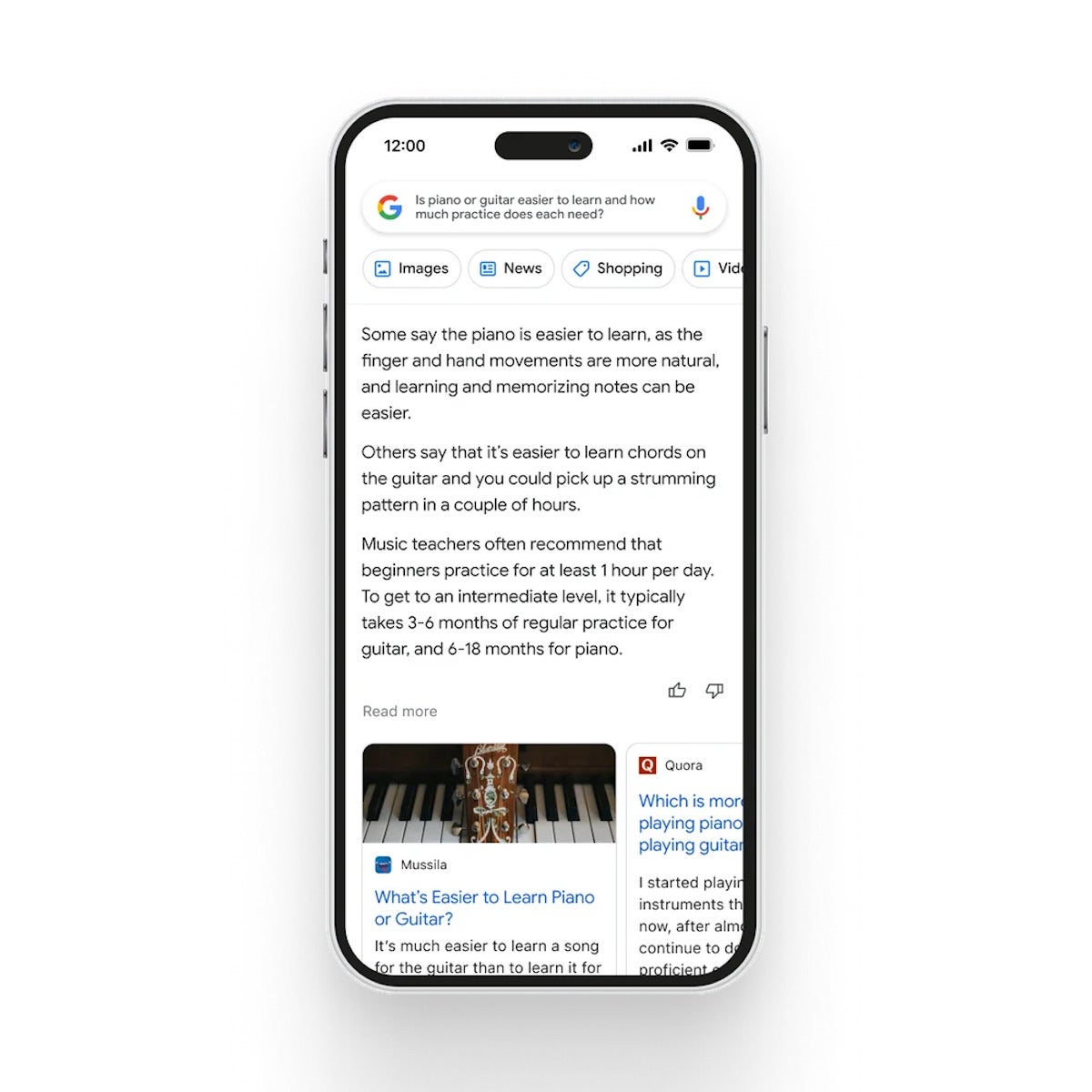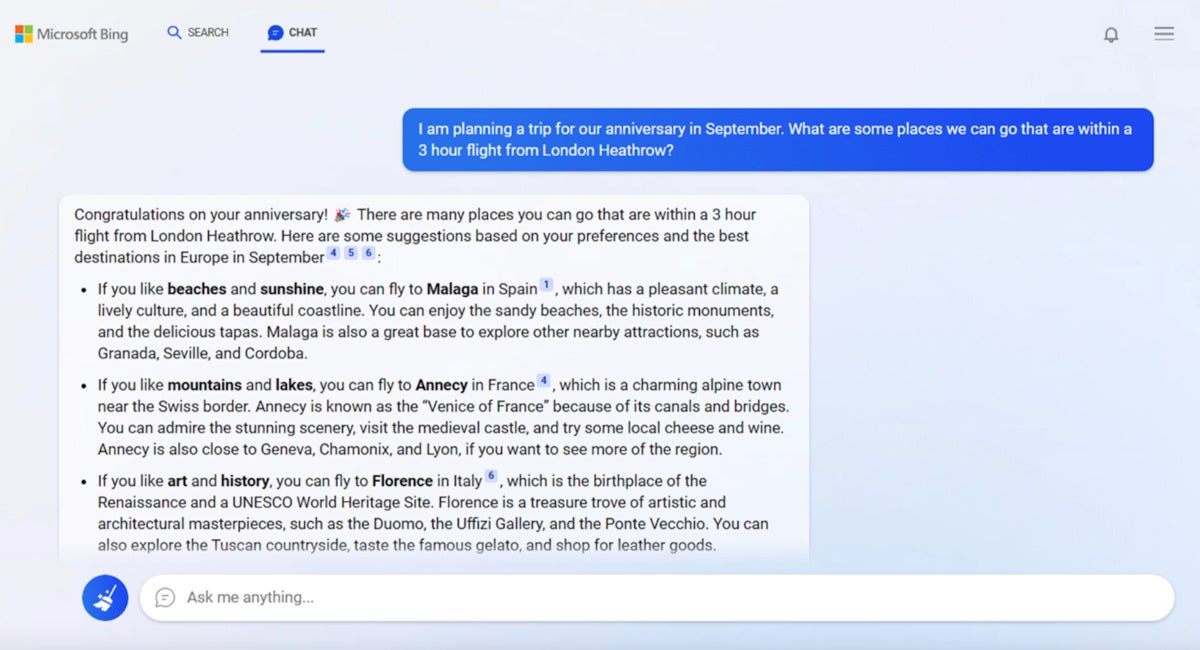Bing vs. Google: the new AI-driven search wars are on
opinion
Feb 13, 20234 mins
Artificial IntelligenceAugmented RealityGoogle
For decades, Google has dominated search. Now, thanks to ChatGPT, Microsoft Bing poses a real challenge to the Google search engine.
Not so long ago, in the 1990s, online users had their choice of a variety of search engines. They included Excite, WebCrawler, Lycos, and my favorite at the time, AltaVista.
Then, along came Google and PageRank. With PageRank, Google rates the relevancy of web pages to queries based not only on whether the pages contain the search terms (the technique used by all search engines) but by how many relevant pages link to it. It made Google’s results much better than its rivals.
Now, thanks to Microsoft decision to integrate OpenAI’s ChatGPT with Bing, the search engine wars are back with a vengeance.
That’s because, for decades, online search has been about finding facts. But getting actual answers from those facts requires you to become a search expert. Indeed, a good deal of my success as a writer has come from the fact that I am such an expert. I’ve been using search engines since the late 1970s and early 1980s when online database systems such as NASA RECON; Dialog, now ProQuest; and OCLC first arrived.
With advances in artificial intelligence, (AI) we’re moving beyond search engines and facts to what Wall Street Journal columnist Christopher Mims calls “answer engines.”
With this new generation of engines, instead of hunting down facts, the chat interface provides us with answers to our questions. (Whether you can trust those answers to be accurate is another question entirely.)
That hasn’t stopped people from adopting ChatGPT, the chat interface, and the AI engine behind it, as fast as possible. According to a UBS study, ChatGPT reached 100 million active users just two months after launch, making it the fastest-growing consumer application ever.
An example of a Bing search using OpenAI’s chatbot technology.
That also means people are already using it to write school papers, articles, and press releases. Since research and writing are my business, let me tell you now, ChatGPT is not ready for any of that. The results are often garbage. Oh, it often looks good, but then so does fast food.
That isn’t stopping anyone, though. Given a choice between the eternal trinity of good, fast, and cheap, people usually choose fast and cheap. If they can get a good enough result in a few seconds for free, they’ll go for good enough every time.
Google knows that, too. That’s why the company went into a full-scale panic once Microsoft invested $ 10 billion in OpenAI. Google’s brass knew darn well what Microsoft would do: They’d use it to reinvent Bing, its long-time second-place, second-rate search engine. And since what people really crave are quick answers rather than accurate facts, Bing almost instantly became a potential threat.
Besides, the new Bing is already good enough if you know what you’re doing with it. The new Bing answer engine simply outclasses the Google search engine. As my fellow tech journalist colleague Stephen Shankland put it, “ Microsoft’s AI-Powered Bing Can Run Rings Around Google Search.”
If you don’t know how to search well, you’re still going to get garbage out — but since most people don’t know how to judge an answer’s accuracy, that won’t stop them. It’s also not stopping businesses that value cheapness over accuracy. Publishers are already using it to get rid of writers. You’ll also see this in spam, and anywhere someone can make a buck from delivering “stories” like the “Five best Viagra pills.”
 Google
Google
An example of Google’s Bard AI-powered search engine results.
What Google did was rush its own AI-search chat bot Bard to market, where it promptly, and prominently blundered with a wrong answer.
Whoops.
Google will get it right, eventually. And Bing’s answers will improve, eventually.
Who gets it right first will determine who wins the new search war. Despite Google shooting itself in the foot, I’m not counting them it yet. But there’s no question that for the first time in this century, the search wars are on again.
Who wins will be an important inflection point for both technology and business. That said, there’s another question here: can we really afford to rely on AI-created answers?
Eventually, AI answers will be trustworthy, but we’re not there yet. Talk to me again in 2025; it may well be a different story. But, for now, if being right means more than just getting a fast answer, treat both ChatGPT and Bard — and the new model Bing and Google — with great caution.
Otherwise, you’ll end up burned.

